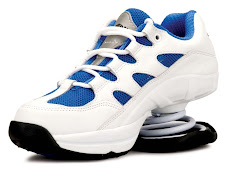
Roughly 8 out of 10 people suffer from back pain at some point during their lives. Women, in particular, are prone to posture and back problems—thanks to toting around outrageously heavy purses, going through pregnancy, or giving one-hip rides to kids. Whether you’re in the midst of fighting the ache or just want to prevent it, here are some expert-endorsed quick-and-easy ways to wage your war.
Pass the broccoli, please
You know that calcium is key for strong bones, but Japanese researchers have identified something else you need: vitamin K. It’s believed that the vitamin, found in broccoli, spinach, and other dark leafy greens, helps calcium deposit in the bones, making them denser. The stronger your bones, the stronger your whole body—and the lower your chances of an injury that could cause back pain.
Lighten your load
If your purse or briefcase tips the scales at more than 10 percent of your weight, it’s too heavy. And you need to carry it right. Your best bet is a model with a long strap that lets you position it across your chest like a messenger bag. Can’t part with your shorter-strapped number? Switch shoulders every 20 minutes.
Sleep right
A harder bed may not be better for your back. A recent study in Spine found that people who slept on softer beds reported less lower-back pain than those who snoozed on harder ones.
Pillows? Yours shouldn’t raise your head out of alignment with your spine. How to tell: If you’re a back sleeper, your chin shouldn’t press into your chest. If you’re a side sleeper, it shouldn’t curve up toward your shoulder.
Tighten those abs
Having strong core muscles (we’re talking abs here) can help protect your back from injury. Do this core-strengthening pelvic tilt 2 to 3 times per week: Lie on your back with knees bent, feet flat on the floor, and lower back flattened. Pull in your belly button toward your spine, contracting your abs; your pelvis should lift slightly off the floor. Do 2 to 3 sets of 12 reps.
Aim for good posture
Sitting at a desk for eight (or more) hours a day can really do a number on your back. Make sure to sit with your back against your chair (get a lumbar pillow if you chair doesn’t allow this) and both feet flat on the floor. Another option: Try using a stability ball as your desk chair. Start off slow (20 minutes at a time), and if it feels good, stick with it.
Pass the broccoli, please
You know that calcium is key for strong bones, but Japanese researchers have identified something else you need: vitamin K. It’s believed that the vitamin, found in broccoli, spinach, and other dark leafy greens, helps calcium deposit in the bones, making them denser. The stronger your bones, the stronger your whole body—and the lower your chances of an injury that could cause back pain.
Lighten your load
If your purse or briefcase tips the scales at more than 10 percent of your weight, it’s too heavy. And you need to carry it right. Your best bet is a model with a long strap that lets you position it across your chest like a messenger bag. Can’t part with your shorter-strapped number? Switch shoulders every 20 minutes.
Sleep right
A harder bed may not be better for your back. A recent study in Spine found that people who slept on softer beds reported less lower-back pain than those who snoozed on harder ones.
Pillows? Yours shouldn’t raise your head out of alignment with your spine. How to tell: If you’re a back sleeper, your chin shouldn’t press into your chest. If you’re a side sleeper, it shouldn’t curve up toward your shoulder.
Tighten those abs
Having strong core muscles (we’re talking abs here) can help protect your back from injury. Do this core-strengthening pelvic tilt 2 to 3 times per week: Lie on your back with knees bent, feet flat on the floor, and lower back flattened. Pull in your belly button toward your spine, contracting your abs; your pelvis should lift slightly off the floor. Do 2 to 3 sets of 12 reps.
Aim for good posture
Sitting at a desk for eight (or more) hours a day can really do a number on your back. Make sure to sit with your back against your chair (get a lumbar pillow if you chair doesn’t allow this) and both feet flat on the floor. Another option: Try using a stability ball as your desk chair. Start off slow (20 minutes at a time), and if it feels good, stick with it.
Courtesy Health.com

1 comment:
Back pain is one of the most debilitating and chronic ailments affecting 8 out of 10 individuals at some point in their lives. Back pain is not a disease, but is a symptom occurring from variety of different conditions and processes. Here you have given Tips for back pain. Actually I have back pain from 2 months. I am worried about that. But Just following your tips, Right now I am feeling much better. Thank you very much.
Post a Comment